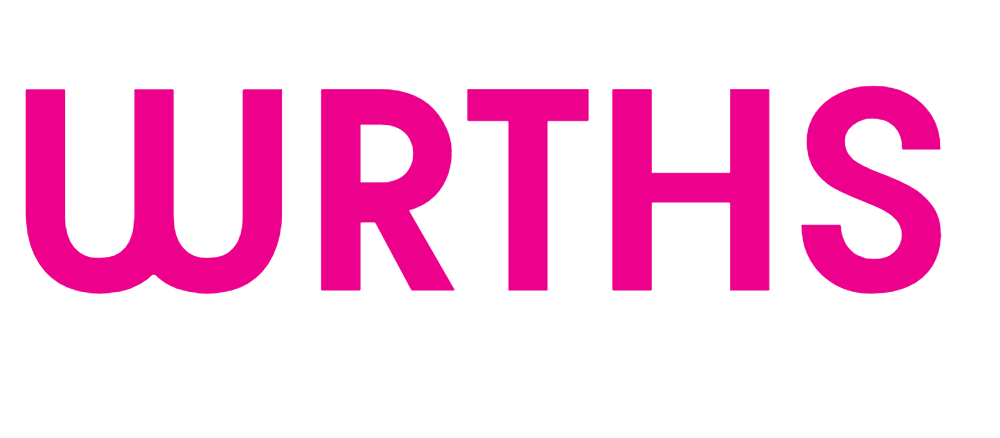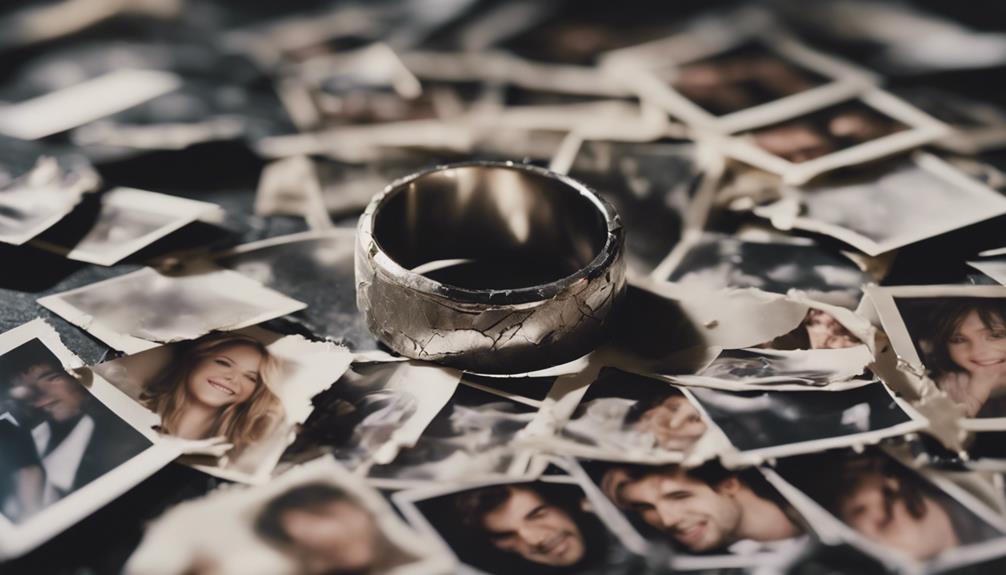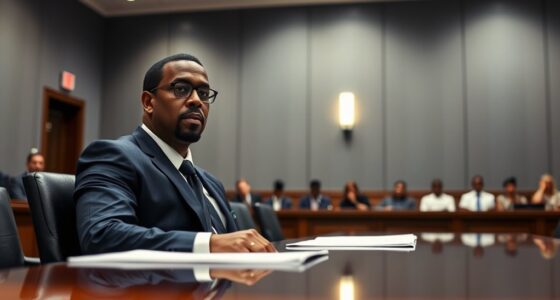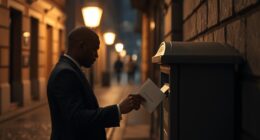Music sampling lawsuits, like Ed Sheeran’s “Thinking Out Loud” case, show how important it is to get proper permissions before using parts of existing recordings. Courts rarely accept fair use as a defense, so skipping clearance can lead to hefty damages, loss of royalties, and reputational harm. High-profile cases serve as warnings that thorough licensing is essential to avoid legal trouble. To learn more about how these cases shape the industry, keep exploring this topic.
Key Takeaways
- The Ed Sheeran ‘Thinking Out Loud’ case involved allegations of copying a chord progression, highlighting challenges in distinguishing inspiration from infringement.
- Courts often require clear sampling clearance and licensing; failure to do so can lead to significant legal damages and loss of rights.
- High-profile lawsuits, like The Verve’s “Bitter Sweet Symphony,” demonstrate how minimal samples can result in loss of royalties and credit.
- Fair use defenses are rarely accepted in sampling disputes, emphasizing the importance of obtaining proper permissions beforehand.
- Evolving laws and court precedents stress the need for artists to secure clearances to avoid costly legal actions in sampling cases.
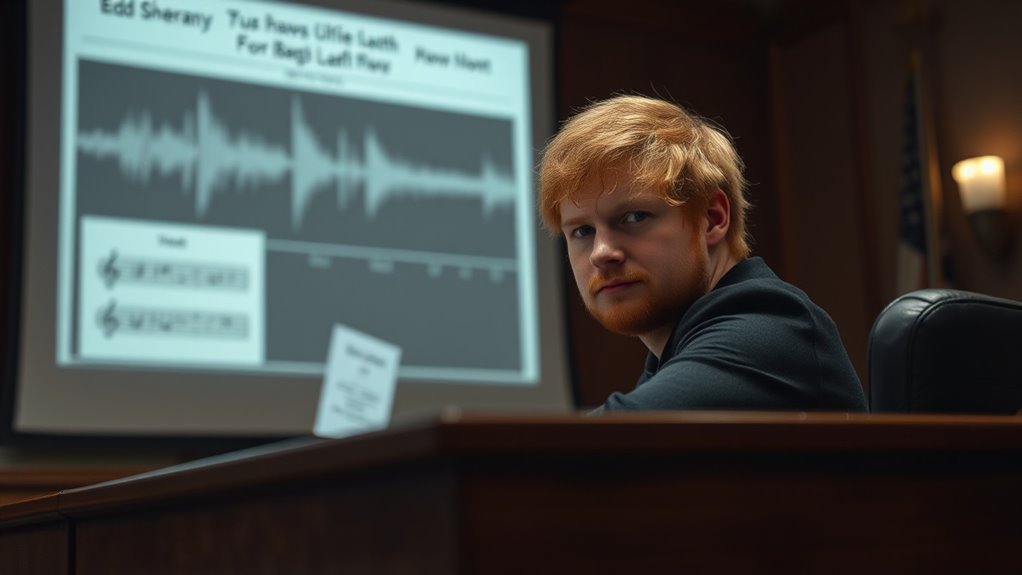
Music sampling, the practice of reusing snippets of existing recordings in new songs, has become a powerful creative tool in the industry. It allows artists to pay homage, create new textures, or build on familiar melodies, but it also comes with significant legal risks. When you sample a part of a sound recording without securing the proper permissions, you’re likely infringing on copyright laws. Both the sound recording itself and the underlying musical composition are protected, so you need clearance from the rights holders of each. This means obtaining licenses from the owner of the master recording and the publisher of the underlying song. If you skip this step, you risk facing legal action, hefty damages, and reputational damage. Additionally, courts generally don’t accept fair use as a valid defense for sampling, especially when the sample is recognizable or substantial. The more you sample, the less likely it is to be considered fair use, as courts see sampling as a potential threat to the market for original works. Unauthorized sampling can also hurt the digital and physical music markets, as it discourages artists from creating new work, fearing litigation. In many landmark cases, these legal principles have been tested. The De La Soul case, for example, set early precedents when they faced lawsuits for sampling a 12-second clip from The Turtles. The Verve’s case over “Bitter Sweet Symphony” exemplifies how even minimal sampling can result in losing royalties and credits. In contrast, Ed Sheeran’s “Shape of You” was accused of copying Sami Chokri’s “Oh Why,” but the court cleared Sheeran, highlighting the difficulty in distinguishing inspiration from infringement as musical output increases. Legal consequences for sampling can be severe. Recent AI music lawsuits have sought statutory damages of up to $150,000 per song, while artists like John Fogarty have faced millions in legal fees over similar disputes. The Verve lost all royalties and credits on “Bitter Sweet Symphony,” and high-profile cases often damage reputations regardless of the outcome. Many artists and labels become wary of sampling altogether, which can limit creative expression. The sampling clearance process involves identifying rights holders, negotiating licenses—often involving upfront fees and royalties—and documenting agreements thoroughly. Failing to clear samples can lead to costly lawsuits, financial penalties, and loss of control over your music. As the legal landscape continues to evolve with new technologies, staying informed about sampling laws and regulations is crucial for artists and producers. Although fair use might seem like a safe fallback, courts rarely accept it as a defense for sampling. Instead, the focus remains on obtaining permission to avoid infringing on others’ rights. As music creation evolves, especially with new AI technologies, the legal landscape continues to adapt, but the core principle remains: if you want to sample, get permission first.
Frequently Asked Questions
How Do Artists Typically Clear Samples Legally Before Releasing Music?
You typically clear samples by first identifying the rights holders for both the song and recording. Then, you contact music publishers or record labels, providing details about your intended use, such as sample length and how it’ll be used. You negotiate licensing terms, including fees or royalties. Document all communications, and be prepared for delays or refusals. Alternatively, consider creating original recordings or using public domain works if clearance isn’t possible.
What Are the Financial Implications of Losing a Sampling Lawsuit?
Losing a sampling lawsuit hits you hard financially. You face hefty statutory damages, which can reach up to $100,000 per infringed work if willful. You might also be ordered to stop sales, recall products, or destroy infringing copies, losing revenue. Plus, you could owe actual damages and profits lost, plus legal fees. The overall cost can cripple your career, damage your reputation, and limit future opportunities, making legal risks even more critical.
Can Unintentional Sampling Lead to Legal Action?
You might think unintentional sampling isn’t a big deal, but courts often see it differently. Even if you didn’t mean to infringe, unauthorized samples can still lead to legal action, especially in circuits with strict rules. The law focuses on whether the sample was used without permission, not your intent. So, be cautious—accidental or not, unlicensed sampling can still land you in legal trouble.
How Do Courts Determine if Sampling Is ‘Fair Use’?
When courts evaluate if sampling qualifies as fair use, you should understand they consider several factors. They look at whether your use is transformative and adds value, especially if it’s non-commercial. They also assess how much of the original work you used, its creative nature, and whether your sample impacts the market. Ultimately, courts favor transformative, limited, or non-commercial uses, but licensing remains the safest way to avoid legal issues.
Are There Notable Cases Where Sampling Was Successfully Defended in Court?
Have you wondered if sampling can ever be defended successfully in court? You should know that courts have recognized some defenses, like in John Fogarty’s case, where artistic differences proved the songs were distinct. Additionally, the landmark *Campbell v. Acuff-Rose* case upheld parody as fair use, and some settlements, like De La Soul’s, show that negotiation can also protect artists. These examples show that, under certain conditions, sampling defenses can succeed.
Conclusion
Just as a melody can carry the weight of a thousand stories, your creative spirit must respect the unseen threads that connect every note. Lawsuits like Ed Sheeran’s remind you that each sample is a bridge—either built with integrity or broken by oversight. Protect your artistry by honoring the original tune’s soul, for in doing so, you safeguard the harmony that keeps music alive. Ultimately, your choices echo through time, shaping the legacy you leave behind.
